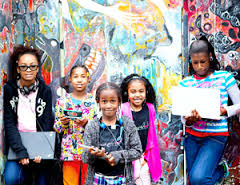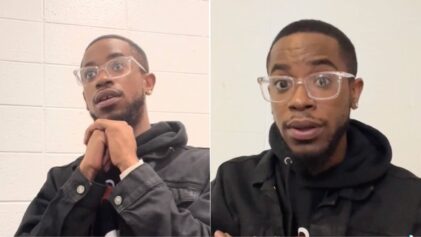The Web documentary series, Black Girls Code (BGC), is theoretically revisiting the age-old debate between scholar W.E.B. Dubois and educator Booker T. Washington, addressing the question of whether Blacks should be educated in fields that move them beyond the margins of performing specific jobs with a narrow scope for opportunities, or if Blacks should be content with growing where they have been systematically planted.
The series, which began last fall, introduces BGC and the type of projects they complete. Episode #2 of the series, The Revolution will be Digitized, takes us to a school in an urban community of Miami, Florida.
One of the interviewed, Felicia Hunter, CEO of Miami-based organization Code Fever, which seeks to close the gap in technology education, speaks to the ever-present need for educational reform, as many students in low-income communities are being crippled by the need to pass standardized tests as opposed to being nurtured by a well-rounded curriculum.
McKeever E. Conwell, another interviewed, says, “It’s not that Black or minority children aren’t smart enough, [it’s that] their school systems aren’t good enough.”
This is a reality that has followed us from the first Black freedom schools, where students were given second hand materials and books from white schools that were often outdated.
Systematically Blacks have not been set up to succeed in the American education system. The current failing system was built on a warped foundation. This is why the Washington – DuBois debate has been an ever-present conversation.
Washington’s position was that Blacks should prove themselves through hard work and self-reliance. His contribution to this end included founding the Tuskegee Institute, a model that educated Blacks to become teachers, farmers and artisans.
While DuBois found these positions necessary, he didn’t think it wise for this to be the extent to which Blacks were educated. DuBois feared this narrow education would only perpetuate the oppression of Blacks and fuel the white agenda of keeping Blacks confined within a socially and economically subservient box.
DuBois advocated for Blacks to be given equal opportunities in education as were afforded their white counterparts, this included expanding into territories of learning that were unchartered for Blacks, such as math, science and engineering.
Black Girls Code, a San Francisco based initiative, seems to be taking a ‘DuBoisian’ approach in the area of educating Black girls to burst the education pipeline and overflow themselves in other areas of interest, which, as evidenced by the Washington – DuBois debate, have long been void of Blacks, specifically in this case—Black women.
Founder, Kimberly Bryant is at the forefront of this revolution, which teaches Black girls ages 7-17 how to code and build websites. Bryant says the scarcity of Black women in this field has little to do with lack of interest and more to do with lack of resources and opportunities and she wants to be able to provide a space where these resources and opportunities are available. Bryant says “ I hope to provide young and pre-teen girls of color opportunities to learn in-demand skills in technology and computer programming at a time when they are naturally thinking about what they want to be when they grow up.”



